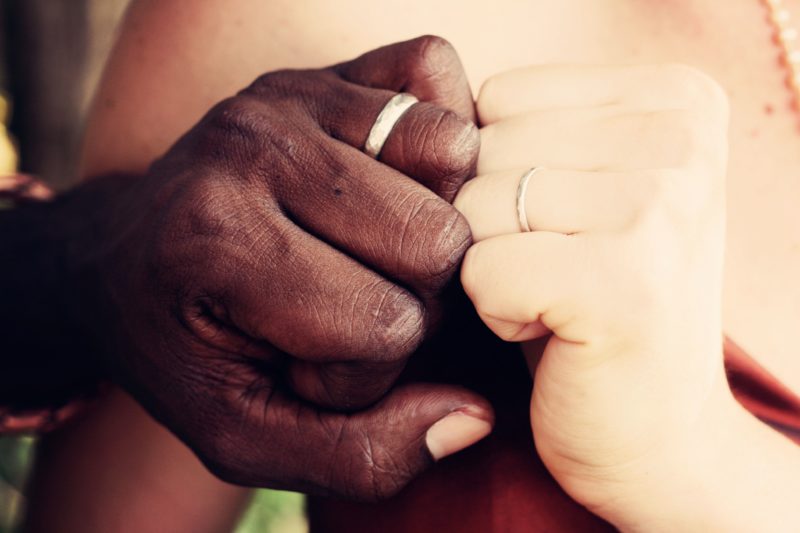Views: 62
G’Day Everyone!
Elle Magazine Australia recently interviewed me regarding the growing issue of women having affairs in their 1st year of marriage.
For those of you who cannot grab a copy of this months Elle Magazine, Australian Edition, May 2014, I have attached the article for you.
Please feel free to add your comments. Do you think it is a growing concern? If so why?
We’ve all heard of the seven-year itch – the stage where couples lose interest in their relationship and stray. Now, new research shows the time frame for cheating has lurched forward dramatically: eight per cent of Australian female newlyweds who signed up to controversial dating website, Ashley Madison, admit they were unfaithful before they’d even been married for one year.
Researchers have pinpointed the seven-month mark as the flashpoint where extramarital affairs begin, giving rise to the seven-month itch phenomenon. “Traditionally, seven years into a relationship used to be make-or-break,” says Savannah Ellis, founder and coach at the Infidelity Recovery Institute. “But now, in our ‘have it all, have it now’ culture, because our courtships are much longer, romance often wanes way before the wedding. Then, after the natural high of the honeymoon period wears off post-wedding, all too often you’re left with two people with everyday problems and stresses. And if romance isn’t happening in our marriages, many women are tempted to seek the new-relationship high elsewhere.”
On her wedding day, Cressida Smythe*, a Melbourne-based advertising executive, was the perfect picture of a loved-up bride. At 28, she was marrying her childhood sweetheart, James. They’d travelled overseas together and had spent the past few months planning their dream wedding. “It was the happiest day of my life. I’d always imagined growing old with James – I couldn’t wait to be his wife,” she says.
Smythe is the first to admit she assumed marriage would lead straight to happily-ever-after. While she was saying her vows in front of friends and family, it never crossed her mind she’d cheat on her husband before they celebrated their first anniversary. Yet she says that almost immediately after the wedding, cracks appeared. “Before we married I’d found the fact that James was the jealous type flattering. After our wedding, I noticed him becoming more possessive,” she says. “He seemed to think that because we were married it was – everything James wasn’t at that time. We swapped numbers and met for coffee.”
Smart phones have a key role to play in infidelity – it’s now easier than ever to cheat. “Having unlimited opportunities to connect online makes it easier to contact people outside of our marriages and this can have an effect on someone who is not happy with the state of theirs,” says Denise Reichenbach, counsellor at Relationships Australia.
Dating sites and apps make it simpler to find people outside of your immediate social circle to cheat with, and opportunity is a big factor when it comes to stepping outside of your relationship. Meanwhile, social networking makes it easy to blur the lines of what constitutes infidelity. “When does harmless Facebook flirting turn into cheating?” asks Ellis.
Smythe continued to text and meet with the man she met that night. “I convinced myself it was innocent friendship until we went out for drinks and ended up sleeping together. I’d never been unfaithful before and the guilt was crippling but still, I felt a sense of defiant freedom.”
Living together before marriage might also be responsible for infidelity in the first year. Research by psychologists at the University of Denver reveals more couples are marrying simply because it has become the expected next step, rather than because they actually want to wed. Psychologists have even coined the term “sliders” to describe co-habiting couples who “slide” into marriage without any real desire to make a lifelong commitment. The study goes on to find that female sliders who move in with their partners before they get engaged are statistically around 40 per cent more likely to get divorced compared with those who don’t.
Sara Bright*, a management consultant from Sydney, admits she felt pressure from her social circle to marry. “Tim and I were introduced by mutual friends at a party. The night we met, he practically moved in to my place,” she says. “The physical attraction between us was intense – we couldn’t get enough of each other. We were both in the same line of work and in our forties; I felt like we were soulmates. When we launched a business together, it only compounded that feeling, but soon our business became all we talked – and bickered – about. It caused so much strain that we stopped having sex.” Bright’s friends, oblivious to the problems they were having, continued to pester the couple about when they would tie the knot.
“I was stunned when, out of the blue, Tim proposed,” she says. “I said yes straight away – I really believed marriage might help to bring us closer. The months planning our wedding were heady with romance. But it was only once we were unpacking our bags after the honeymoon that I felt a pang of regret. I couldn’t shake the feeling that he wasn’t the man I wanted to spend the rest of my life with. Returning to work, the same pressures and stresses were there. Within days, I felt exactly as I had before we’d got engaged – frustrated and bored. And it was even more galling to feel that way because we were married.”
Relationship experts believe unrealistic expectations about what married life will be like can quickly lead to bitter disappointment. This breeds resentment, which makes infidelity more likely, especially for women. “We expect that being a husband automatically makes our partner a better man and marriage should give us a more rewarding relationship,” says Ellis. “But in reality your new husband is the same man he was before your wedding – and it doesn’t take long to feel frustration because nothing’s changed or improved.”
“Being unfaithful to Tim hadn’t entered my head until seven months after we married,” admits Bright. “I attended a work meeting with a client, who happened to be an attractive single guy. The conversation turned flirty and, before I knew it, we were in bed. I was shocked I didn’t feel guilty. I felt desirable for the first time since my wedding night. Craving that, I slept with him again soon afterwards.”
As divorce rates in Australia rise, leaving a marriage when things don’t work out feels increasingly normal. “It is more acceptable now to walk away from a struggling marriage,” says Ellis, “Our culture centres around, ‘If it doesn’t work, get divorced’.” Reichenbach agrees: “Often we’re not prepared to work on ourselves and our relationship to make it work. We just expect everything to run smoothly, which isn’t the reality of marriage.”
In the end, Smythe was prepared to fight for her marriage, but it took two years of hard work. “I realised that I didn’t want to leave James so I ended my affair,” she says. “I had infidelity counselling and came to my own conclusion that I owed it to James and our marriage to confess. He was devastated and asked me to leave but once he’d cooled off he admitted his controlling behaviour was partly responsible for driving me away. He’d been feeling insecure, but could appreciate how ironic it was that his behaviour had driven me to cheat and promised to work through his jealousy issues. We had couple’s counselling and now, looking back, I regret being unfaithful, but my affair made us both realise what we stood to lose. Now, we’re finally happy.”
However, if the love and commitment isn’t there anymore, those who have acted on the seven-month itch agree there’s little point in struggling on. Bright’s infidelity was the wake-up call she needed. “Eventually, I confessed to Tim,” she says. “He was furious and we split. I was sad but relieved, too. In hindsight, I was naive to think marriage would suddenly make us right for each other. Instead of talking weddings, we should have talked about how we really felt.”
It’s not easy to be brutally honest about what you expect from your marriage but pre-marital counselling can help couples determine whether they are both in it for forever, before they say “I do”.
In 2014, no-one should feel like they have to tie the knot – unless they really want to. “Before you get married ask yourself: ‘Am I in this to the end? What are our goals? Maybe there will be years where we don’t have great sex or have financial problems – can I handle that?’” says Ellis. “If the answers are ‘no’, then don’t do it. Live together, have fun, but don’t walk down the aisle.”
This article appeared in Elle Magazine, May 2014.
Written by: Beth Pope
– See more at: http://infidelityrecoveryinstitute.com/women-who-cheat-in-the-1st-year-of-marriage/#sthash.EsmNBv5t.dpuf
We’ve all heard of the seven-year itch – the stage where couples lose interest in their relationship and stray. Now, new research shows the time frame for cheating has lurched forward dramatically: eight per cent of Australian female newlyweds who signed up to controversial dating website, Ashley Madison, admit they were unfaithful before they’d even been married for one year.
Researchers have pinpointed the seven-month mark as the flashpoint where extramarital affairs begin, giving rise to the seven-month itch phenomenon. “Traditionally, seven years into a relationship used to be make-or-break,” says Savannah Ellis, founder and coach at the Infidelity Recovery Institute. “But now, in our ‘have it all, have it now’ culture, because our courtships are much longer, romance often wanes way before the wedding. Then, after the natural high of the honeymoon period wears off post-wedding, all too often you’re left with two people with everyday problems and stresses. And if romance isn’t happening in our marriages, many women are tempted to seek the new-relationship high elsewhere.”
On her wedding day, Cressida Smythe*, a Melbourne-based advertising executive, was the perfect picture of a loved-up bride. At 28, she was marrying her childhood sweetheart, James. They’d travelled overseas together and had spent the past few months planning their dream wedding. “It was the happiest day of my life. I’d always imagined growing old with James – I couldn’t wait to be his wife,” she says.
Smythe is the first to admit she assumed marriage would lead straight to happily-ever-after. While she was saying her vows in front of friends and family, it never crossed her mind she’d cheat on her husband before they celebrated their first anniversary. Yet she says that almost immediately after the wedding, cracks appeared. “Before we married I’d found the fact that James was the jealous type flattering. After our wedding, I noticed him becoming more possessive,” she says. “He seemed to think that because we were married it was – everything James wasn’t at that time. We swapped numbers and met for coffee.”
Smart phones have a key role to play in infidelity – it’s now easier than ever to cheat. “Having unlimited opportunities to connect online makes it easier to contact people outside of our marriages and this can have an effect on someone who is not happy with the state of theirs,” says Denise Reichenbach, counsellor at Relationships Australia.
Dating sites and apps make it simpler to find people outside of your immediate social circle to cheat with, and opportunity is a big factor when it comes to stepping outside of your relationship. Meanwhile, social networking makes it easy to blur the lines of what constitutes infidelity. “When does harmless Facebook flirting turn into cheating?” asks Ellis.
Smythe continued to text and meet with the man she met that night. “I convinced myself it was innocent friendship until we went out for drinks and ended up sleeping together. I’d never been unfaithful before and the guilt was crippling but still, I felt a sense of defiant freedom.”
Living together before marriage might also be responsible for infidelity in the first year. Research by psychologists at the University of Denver reveals more couples are marrying simply because it has become the expected next step, rather than because they actually want to wed. Psychologists have even coined the term “sliders” to describe co-habiting couples who “slide” into marriage without any real desire to make a lifelong commitment. The study goes on to find that female sliders who move in with their partners before they get engaged are statistically around 40 per cent more likely to get divorced compared with those who don’t.
Sara Bright*, a management consultant from Sydney, admits she felt pressure from her social circle to marry. “Tim and I were introduced by mutual friends at a party. The night we met, he practically moved in to my place,” she says. “The physical attraction between us was intense – we couldn’t get enough of each other. We were both in the same line of work and in our forties; I felt like we were soulmates. When we launched a business together, it only compounded that feeling, but soon our business became all we talked – and bickered – about. It caused so much strain that we stopped having sex.” Bright’s friends, oblivious to the problems they were having, continued to pester the couple about when they would tie the knot.
“I was stunned when, out of the blue, Tim proposed,” she says. “I said yes straight away – I really believed marriage might help to bring us closer. The months planning our wedding were heady with romance. But it was only once we were unpacking our bags after the honeymoon that I felt a pang of regret. I couldn’t shake the feeling that he wasn’t the man I wanted to spend the rest of my life with. Returning to work, the same pressures and stresses were there. Within days, I felt exactly as I had before we’d got engaged – frustrated and bored. And it was even more galling to feel that way because we were married.”
Relationship experts believe unrealistic expectations about what married life will be like can quickly lead to bitter disappointment. This breeds resentment, which makes infidelity more likely, especially for women. “We expect that being a husband automatically makes our partner a better man and marriage should give us a more rewarding relationship,” says Ellis. “But in reality your new husband is the same man he was before your wedding – and it doesn’t take long to feel frustration because nothing’s changed or improved.”
“Being unfaithful to Tim hadn’t entered my head until seven months after we married,” admits Bright. “I attended a work meeting with a client, who happened to be an attractive single guy. The conversation turned flirty and, before I knew it, we were in bed. I was shocked I didn’t feel guilty. I felt desirable for the first time since my wedding night. Craving that, I slept with him again soon afterwards.”
As divorce rates in Australia rise, leaving a marriage when things don’t work out feels increasingly normal. “It is more acceptable now to walk away from a struggling marriage,” says Ellis, “Our culture centres around, ‘If it doesn’t work, get divorced’.” Reichenbach agrees: “Often we’re not prepared to work on ourselves and our relationship to make it work. We just expect everything to run smoothly, which isn’t the reality of marriage.”
In the end, Smythe was prepared to fight for her marriage, but it took two years of hard work. “I realised that I didn’t want to leave James so I ended my affair,” she says. “I had infidelity counselling and came to my own conclusion that I owed it to James and our marriage to confess. He was devastated and asked me to leave but once he’d cooled off he admitted his controlling behaviour was partly responsible for driving me away. He’d been feeling insecure, but could appreciate how ironic it was that his behaviour had driven me to cheat and promised to work through his jealousy issues. We had couple’s counselling and now, looking back, I regret being unfaithful, but my affair made us both realise what we stood to lose. Now, we’re finally happy.”
However, if the love and commitment isn’t there anymore, those who have acted on the seven-month itch agree there’s little point in struggling on. Bright’s infidelity was the wake-up call she needed. “Eventually, I confessed to Tim,” she says. “He was furious and we split. I was sad but relieved, too. In hindsight, I was naive to think marriage would suddenly make us right for each other. Instead of talking weddings, we should have talked about how we really felt.”
It’s not easy to be brutally honest about what you expect from your marriage but pre-marital counselling can help couples determine whether they are both in it for forever, before they say “I do”.
In 2014, no-one should feel like they have to tie the knot – unless they really want to. “Before you get married ask yourself: ‘Am I in this to the end? What are our goals? Maybe there will be years where we don’t have great sex or have financial problems – can I handle that?’” says Ellis. “If the answers are ‘no’, then don’t do it. Live together, have fun, but don’t walk down the aisle.”
This article appeared in Elle Magazine, May 2014.
Written by: Beth Pope
– See more at: http://infidelityrecoveryinstitute.com/women-who-cheat-in-the-1st-year-of-marriage/#sthash.EsmNBv5t.dpu
Best Wishes,
Savannah Ellis is a psychologist, educator, relationship counselor, speaker and author of Reboot Your Relationship & I Cheated – available on AMAZON. Find her at savannahellis.net and @infidelityguru
We’ve all heard of the seven-year itch – the stage where couples lose interest in their relationship and stray. Now, new research shows the time frame for cheating has lurched forward dramatically: eight per cent of Australian female newlyweds who signed up to controversial dating website, Ashley Madison, admit they were unfaithful before they’d even been married for one year.
Researchers have pinpointed the seven-month mark as the flashpoint where extramarital affairs begin, giving rise to the seven-month itch phenomenon. “Traditionally, seven years into a relationship used to be make-or-break,” says Savannah Ellis, founder and coach at the Infidelity Recovery Institute. “But now, in our ‘have it all, have it now’ culture, because our courtships are much longer, romance often wanes way before the wedding. Then, after the natural high of the honeymoon period wears off post-wedding, all too often you’re left with two people with everyday problems and stresses. And if romance isn’t happening in our marriages, many women are tempted to seek the new-relationship high elsewhere.”
On her wedding day, Cressida Smythe*, a Melbourne-based advertising executive, was the perfect picture of a loved-up bride. At 28, she was marrying her childhood sweetheart, James. They’d travelled overseas together and had spent the past few months planning their dream wedding. “It was the happiest day of my life. I’d always imagined growing old with James – I couldn’t wait to be his wife,” she says.
Smythe is the first to admit she assumed marriage would lead straight to happily-ever-after. While she was saying her vows in front of friends and family, it never crossed her mind she’d cheat on her husband before they celebrated their first anniversary. Yet she says that almost immediately after the wedding, cracks appeared. “Before we married I’d found the fact that James was the jealous type flattering. After our wedding, I noticed him becoming more possessive,” she says. “He seemed to think that because we were married it was – everything James wasn’t at that time. We swapped numbers and met for coffee.”
Smart phones have a key role to play in infidelity – it’s now easier than ever to cheat. “Having unlimited opportunities to connect online makes it easier to contact people outside of our marriages and this can have an effect on someone who is not happy with the state of theirs,” says Denise Reichenbach, counsellor at Relationships Australia.
Dating sites and apps make it simpler to find people outside of your immediate social circle to cheat with, and opportunity is a big factor when it comes to stepping outside of your relationship. Meanwhile, social networking makes it easy to blur the lines of what constitutes infidelity. “When does harmless Facebook flirting turn into cheating?” asks Ellis.
Smythe continued to text and meet with the man she met that night. “I convinced myself it was innocent friendship until we went out for drinks and ended up sleeping together. I’d never been unfaithful before and the guilt was crippling but still, I felt a sense of defiant freedom.”
Living together before marriage might also be responsible for infidelity in the first year. Research by psychologists at the University of Denver reveals more couples are marrying simply because it has become the expected next step, rather than because they actually want to wed. Psychologists have even coined the term “sliders” to describe co-habiting couples who “slide” into marriage without any real desire to make a lifelong commitment. The study goes on to find that female sliders who move in with their partners before they get engaged are statistically around 40 per cent more likely to get divorced compared with those who don’t.
Sara Bright*, a management consultant from Sydney, admits she felt pressure from her social circle to marry. “Tim and I were introduced by mutual friends at a party. The night we met, he practically moved in to my place,” she says. “The physical attraction between us was intense – we couldn’t get enough of each other. We were both in the same line of work and in our forties; I felt like we were soulmates. When we launched a business together, it only compounded that feeling, but soon our business became all we talked – and bickered – about. It caused so much strain that we stopped having sex.” Bright’s friends, oblivious to the problems they were having, continued to pester the couple about when they would tie the knot.
“I was stunned when, out of the blue, Tim proposed,” she says. “I said yes straight away – I really believed marriage might help to bring us closer. The months planning our wedding were heady with romance. But it was only once we were unpacking our bags after the honeymoon that I felt a pang of regret. I couldn’t shake the feeling that he wasn’t the man I wanted to spend the rest of my life with. Returning to work, the same pressures and stresses were there. Within days, I felt exactly as I had before we’d got engaged – frustrated and bored. And it was even more galling to feel that way because we were married.”
Relationship experts believe unrealistic expectations about what married life will be like can quickly lead to bitter disappointment. This breeds resentment, which makes infidelity more likely, especially for women. “We expect that being a husband automatically makes our partner a better man and marriage should give us a more rewarding relationship,” says Ellis. “But in reality your new husband is the same man he was before your wedding – and it doesn’t take long to feel frustration because nothing’s changed or improved.”
“Being unfaithful to Tim hadn’t entered my head until seven months after we married,” admits Bright. “I attended a work meeting with a client, who happened to be an attractive single guy. The conversation turned flirty and, before I knew it, we were in bed. I was shocked I didn’t feel guilty. I felt desirable for the first time since my wedding night. Craving that, I slept with him again soon afterwards.”
As divorce rates in Australia rise, leaving a marriage when things don’t work out feels increasingly normal. “It is more acceptable now to walk away from a struggling marriage,” says Ellis, “Our culture centres around, ‘If it doesn’t work, get divorced’.” Reichenbach agrees: “Often we’re not prepared to work on ourselves and our relationship to make it work. We just expect everything to run smoothly, which isn’t the reality of marriage.”
In the end, Smythe was prepared to fight for her marriage, but it took two years of hard work. “I realised that I didn’t want to leave James so I ended my affair,” she says. “I had infidelity counselling and came to my own conclusion that I owed it to James and our marriage to confess. He was devastated and asked me to leave but once he’d cooled off he admitted his controlling behaviour was partly responsible for driving me away. He’d been feeling insecure, but could appreciate how ironic it was that his behaviour had driven me to cheat and promised to work through his jealousy issues. We had couple’s counselling and now, looking back, I regret being unfaithful, but my affair made us both realise what we stood to lose. Now, we’re finally happy.”
However, if the love and commitment isn’t there anymore, those who have acted on the seven-month itch agree there’s little point in struggling on. Bright’s infidelity was the wake-up call she needed. “Eventually, I confessed to Tim,” she says. “He was furious and we split. I was sad but relieved, too. In hindsight, I was naive to think marriage would suddenly make us right for each other. Instead of talking weddings, we should have talked about how we really felt.”
It’s not easy to be brutally honest about what you expect from your marriage but pre-marital counselling can help couples determine whether they are both in it for forever, before they say “I do”.
In 2014, no-one should feel like they have to tie the knot – unless they really want to. “Before you get married ask yourself: ‘Am I in this to the end? What are our goals? Maybe there will be years where we don’t have great sex or have financial problems – can I handle that?’” says Ellis. “If the answers are ‘no’, then don’t do it. Live together, have fun, but don’t walk down the aisle.”
This article appeared in Elle Magazine, May 2014.
Written by: Beth Pope
– See more at: http://infidelityrecoveryinstitute.com/women-who-cheat-in-the-1st-year-of-marriage/#sthash.EsmNBv5t.dpuf
We’ve all heard of the seven-year itch – the stage where couples lose interest in their relationship and stray. Now, new research shows the time frame for cheating has lurched forward dramatically: eight per cent of Australian female newlyweds who signed up to controversial dating website, Ashley Madison, admit they were unfaithful before they’d even been married for one year.
Researchers have pinpointed the seven-month mark as the flashpoint where extramarital affairs begin, giving rise to the seven-month itch phenomenon. “Traditionally, seven years into a relationship used to be make-or-break,” says Savannah Ellis, founder and coach at the Infidelity Recovery Institute. “But now, in our ‘have it all, have it now’ culture, because our courtships are much longer, romance often wanes way before the wedding. Then, after the natural high of the honeymoon period wears off post-wedding, all too often you’re left with two people with everyday problems and stresses. And if romance isn’t happening in our marriages, many women are tempted to seek the new-relationship high elsewhere.”
On her wedding day, Cressida Smythe*, a Melbourne-based advertising executive, was the perfect picture of a loved-up bride. At 28, she was marrying her childhood sweetheart, James. They’d travelled overseas together and had spent the past few months planning their dream wedding. “It was the happiest day of my life. I’d always imagined growing old with James – I couldn’t wait to be his wife,” she says.
Smythe is the first to admit she assumed marriage would lead straight to happily-ever-after. While she was saying her vows in front of friends and family, it never crossed her mind she’d cheat on her husband before they celebrated their first anniversary. Yet she says that almost immediately after the wedding, cracks appeared. “Before we married I’d found the fact that James was the jealous type flattering. After our wedding, I noticed him becoming more possessive,” she says. “He seemed to think that because we were married it was – everything James wasn’t at that time. We swapped numbers and met for coffee.”
Smart phones have a key role to play in infidelity – it’s now easier than ever to cheat. “Having unlimited opportunities to connect online makes it easier to contact people outside of our marriages and this can have an effect on someone who is not happy with the state of theirs,” says Denise Reichenbach, counsellor at Relationships Australia.
Dating sites and apps make it simpler to find people outside of your immediate social circle to cheat with, and opportunity is a big factor when it comes to stepping outside of your relationship. Meanwhile, social networking makes it easy to blur the lines of what constitutes infidelity. “When does harmless Facebook flirting turn into cheating?” asks Ellis.
Smythe continued to text and meet with the man she met that night. “I convinced myself it was innocent friendship until we went out for drinks and ended up sleeping together. I’d never been unfaithful before and the guilt was crippling but still, I felt a sense of defiant freedom.”
Living together before marriage might also be responsible for infidelity in the first year. Research by psychologists at the University of Denver reveals more couples are marrying simply because it has become the expected next step, rather than because they actually want to wed. Psychologists have even coined the term “sliders” to describe co-habiting couples who “slide” into marriage without any real desire to make a lifelong commitment. The study goes on to find that female sliders who move in with their partners before they get engaged are statistically around 40 per cent more likely to get divorced compared with those who don’t.
Sara Bright*, a management consultant from Sydney, admits she felt pressure from her social circle to marry. “Tim and I were introduced by mutual friends at a party. The night we met, he practically moved in to my place,” she says. “The physical attraction between us was intense – we couldn’t get enough of each other. We were both in the same line of work and in our forties; I felt like we were soulmates. When we launched a business together, it only compounded that feeling, but soon our business became all we talked – and bickered – about. It caused so much strain that we stopped having sex.” Bright’s friends, oblivious to the problems they were having, continued to pester the couple about when they would tie the knot.
“I was stunned when, out of the blue, Tim proposed,” she says. “I said yes straight away – I really believed marriage might help to bring us closer. The months planning our wedding were heady with romance. But it was only once we were unpacking our bags after the honeymoon that I felt a pang of regret. I couldn’t shake the feeling that he wasn’t the man I wanted to spend the rest of my life with. Returning to work, the same pressures and stresses were there. Within days, I felt exactly as I had before we’d got engaged – frustrated and bored. And it was even more galling to feel that way because we were married.”
Relationship experts believe unrealistic expectations about what married life will be like can quickly lead to bitter disappointment. This breeds resentment, which makes infidelity more likely, especially for women. “We expect that being a husband automatically makes our partner a better man and marriage should give us a more rewarding relationship,” says Ellis. “But in reality your new husband is the same man he was before your wedding – and it doesn’t take long to feel frustration because nothing’s changed or improved.”
“Being unfaithful to Tim hadn’t entered my head until seven months after we married,” admits Bright. “I attended a work meeting with a client, who happened to be an attractive single guy. The conversation turned flirty and, before I knew it, we were in bed. I was shocked I didn’t feel guilty. I felt desirable for the first time since my wedding night. Craving that, I slept with him again soon afterwards.”
As divorce rates in Australia rise, leaving a marriage when things don’t work out feels increasingly normal. “It is more acceptable now to walk away from a struggling marriage,” says Ellis, “Our culture centres around, ‘If it doesn’t work, get divorced’.” Reichenbach agrees: “Often we’re not prepared to work on ourselves and our relationship to make it work. We just expect everything to run smoothly, which isn’t the reality of marriage.”
In the end, Smythe was prepared to fight for her marriage, but it took two years of hard work. “I realised that I didn’t want to leave James so I ended my affair,” she says. “I had infidelity counselling and came to my own conclusion that I owed it to James and our marriage to confess. He was devastated and asked me to leave but once he’d cooled off he admitted his controlling behaviour was partly responsible for driving me away. He’d been feeling insecure, but could appreciate how ironic it was that his behaviour had driven me to cheat and promised to work through his jealousy issues. We had couple’s counselling and now, looking back, I regret being unfaithful, but my affair made us both realise what we stood to lose. Now, we’re finally happy.”
However, if the love and commitment isn’t there anymore, those who have acted on the seven-month itch agree there’s little point in struggling on. Bright’s infidelity was the wake-up call she needed. “Eventually, I confessed to Tim,” she says. “He was furious and we split. I was sad but relieved, too. In hindsight, I was naive to think marriage would suddenly make us right for each other. Instead of talking weddings, we should have talked about how we really felt.”
It’s not easy to be brutally honest about what you expect from your marriage but pre-marital counselling can help couples determine whether they are both in it for forever, before they say “I do”.
In 2014, no-one should feel like they have to tie the knot – unless they really want to. “Before you get married ask yourself: ‘Am I in this to the end? What are our goals? Maybe there will be years where we don’t have great sex or have financial problems – can I handle that?’” says Ellis. “If the answers are ‘no’, then don’t do it. Live together, have fun, but don’t walk down the aisle.”
This article appeared in Elle Magazine, May 2014.
Written by: Beth Pope









